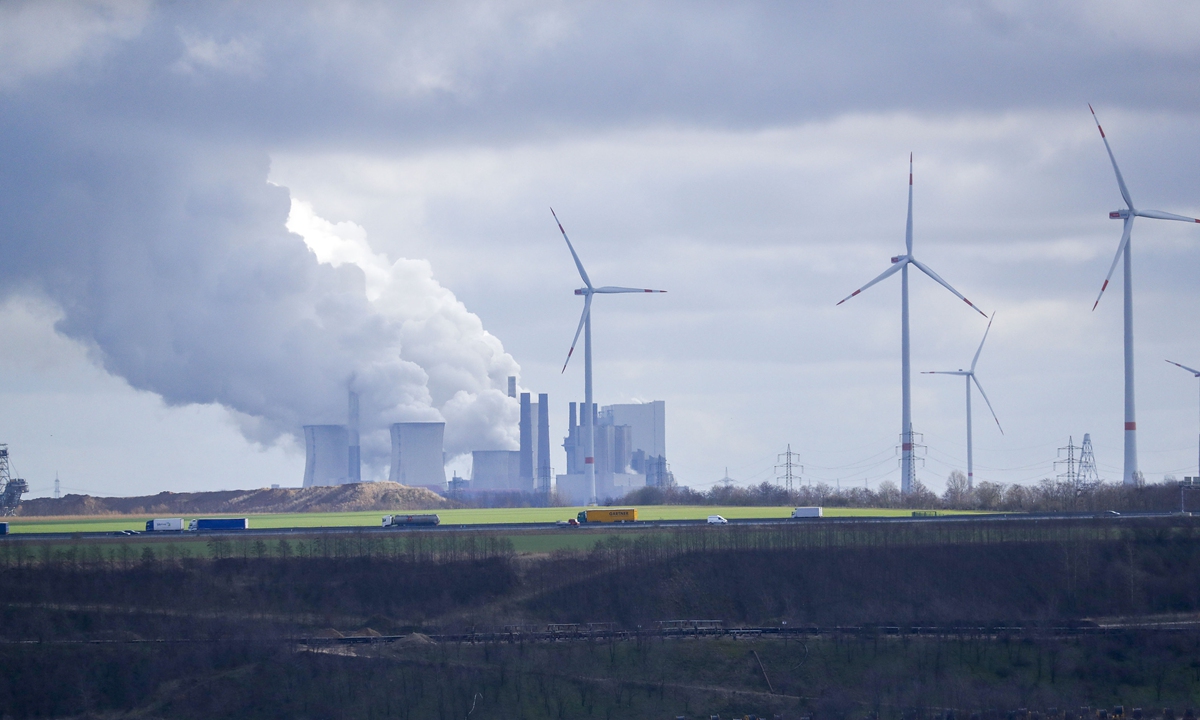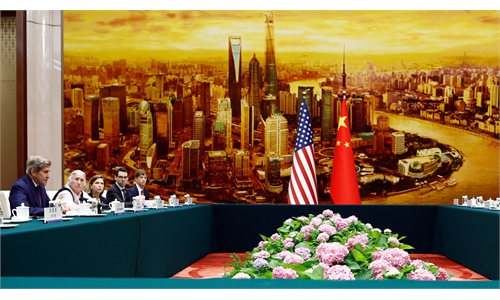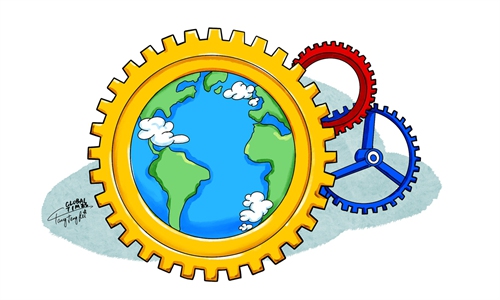Restarting climate cooperation relies on overall atmosphere of China-US relations: Global Times editorial

Co2 emission in the US File Photo: VCG
On July 18, Chinese Premier Li Qiang and Director of the Office of the Foreign Affairs Commission of the CPC Central Committee Wang Yi separately met with the US climate envoy John Kerry. The day before, Xie Zhenhua, China's special envoy for climate change affairs, held lengthy talks with Kerry, with some media reporting that the discussions lasted nearly 12 hours, which surprised many people. During the relevant meetings, both China and the US demonstrated commitment to implementing the consensus reached by their leaders, properly managing differences, jointly addressing climate change, and willingness to bring China-US relations back to the healthy track. Although specific details have not been disclosed, the talks between China and the US have left a positive impression on many people.
As bilateral relations are at their lowest point since the establishment of diplomatic ties, the climate issue is probably one of the few areas where China and the US can have "frank discussions." Climate change is a global challenge that requires concerted efforts from all countries, especially the two major powers China and the US. In 2013, China and the US established a working group on climate change, and through joint efforts, they reached two joint statements in 2014 and 2015. This breakthrough greatly boosted the international community's confidence in addressing climate change and ultimately led to the Paris Agreement. Now, with the resumption of high-level climate diplomacy between China and the US and a positive start, it is something to be cherished.
China and the US have no fundamental contradictions in addressing climate change but have extensive common interests. The key issue lies in how to overcome obstacles to promote cooperation between the two countries. Compared to specific differences in emission reduction, the "political airflow" within Washington will more likely cause turbulence and even overturn the hard-earned cooperative situation. In other words, cooperation between China and the US in addressing climate change cannot exist independently as an oasis in the desert; it is closely related to the overall atmosphere of China-US relations.
There are currently two main obstacles. First, the provocative actions of the US toward China's core interests have undermined the overall environment of bilateral relations and are bound to affect cooperation between China and the US on climate change. During Kerry's visit to China, there were reports that deputy regional leader of Taiwan Lai Ching-te is planning another "transit" visit to the US in August, which undoubtedly will have a new impact on China-US relations.
The second obstacle lies in the incorrect mindset of the US and its failure to position itself correctly on the climate change issue. The US National Security Advisor Jake Sullivan recently stated during Kerry's visit to China that "the world … should step up and encourage, indeed, pressure China to take far more dramatic action to reduce emissions." He also claimed that China "should not be able to hide behind any kind of claim that they're a developing nation, to step up to their responsibility."
These condescending remarks are extremely harsh to Chinese people. They're taken for granted by many politicians in Washington. As the party with the greatest responsibility for climate change, the US is in no position to say such things to China. The US should not act as a supervisor or commander but should instead play the role of being supervised. Firstly, this is because the US has the highest historical cumulative emissions and per capita emissions in the world. Secondly, it is due to the US' irresponsible behavior regarding climate change. If we talk about condescension, in the context of climate change, any other country, including China, stands on a higher moral ground compared with the US.
Kerry's attitude is relatively moderate. He expressed that China and the US can use climate cooperation to redefine their diplomatic relationship in deep water and take a leading role in addressing global warming. China has reached a consensus on this point and has made tremendous efforts. In recent times, extreme weather events have occurred in many parts of the world, highlighting the severity of climate change and further demanding that China and the US should meet each other halfway with utmost sincerity and urgency. If cooperations in all fields related to climate change can be opened up, it will create a new cooperative situation between China and the US and send a strong positive signal to the world.
China has proactively committed to striving for carbon peaking before 2030 and achieving carbon neutrality before 2060. The time frame for these goals is much shorter than that of developed countries. For China, it is a challenging task, but China is propelled by strong self-motivation and considers it a matter of utmost importance for the sustainable development of the Chinese nation and the construction of a shared future for mankind. If developed countries like the US can align themselves with China and assume their own responsibilities, the issue of climate change would not be as difficult. Let's start with fulfilling commitments. Developed countries have explicitly pledged to provide $100 billion in annual climate financing to developing countries. However, the current total financing amount not only falls significantly short of the target but also faces issues of "watering down" and "making up numbers." It is hoped that the US can promptly make up for these obligations.


